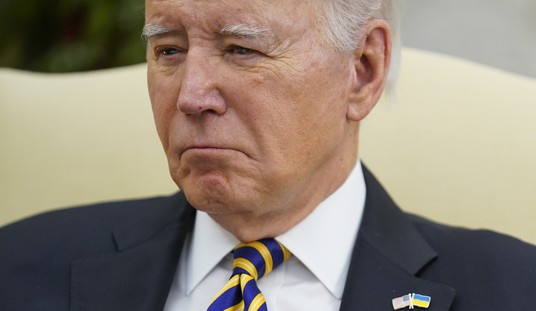Texas is regularly lauded as one of the most transparent state governments in the country. But that could change for the worse.
Addressing the Texas Tribune’s TribFest, Texas House Speaker Joe Straus (R) suggested that outlets like the Tribune and other “mainstream” publications should set the standards for who is and is not considered press enough to be granted credentials to cover the legislature from within.
Straus did not bring the issue up. The Texas Tribune’s Ross Ramsey did.
That the Tribune’s editor broached the issue is curious. The nominally non-profit and nominally non-partisan Texas Tribune was built primarily on donations from the political left. Its CEO, Evan Smith, hails from the tilting-left Texas Monthly. His wife Julia was a Planned Parenthood board member. Planned Parenthood is an industry and a lobby that is wrapped up entirely in politics, as both an abortion provider and a major contributor to the Democratic Party in Texas and across the country. That law that Democrat Sen. Wendy Davis became famous for filibustering stands to hurt Planned Parenthood’s bottom line.
The Tribune itself accepted a $300,000 donation from the tilting-left Ford Foundation to set up a border news bureau. The Ford Foundation expects “results” from its donations, and it is an open border advocate. It advocates explicitly in favor of “comprehensive immigration reform,” which widely viewed as a form of amnesty, and is therefore controversial.
The Tribune’s border bureau has had very little to report about any of the corruption of the type that we uncovered in Hidalgo County the year prior.
The Trib did push this story questioning Gov. Perry’s decision to send National Guard troops to the border to secure it during the recent surge of illegal crossings, though.
So are the Texas Tribune legitimate press? Speaker Strauss treats them as such, so one supposes that they must be. They have their own festival and they have servers in the capital closets for streaming live events.
Would he say the same of PJ Media? Or Breitbart? Or other conservative media? Would Straus allow our non-competitors at the Tribune and the other mainstream media outlets that we regularly criticize to lock us out of the legislature? The current law would let all of us in, since we have full-time staff who cover politics. But that might change.
Strauss made his comments in response to Tribune editor Ross Ramsey musing over who is and is not legitimate media.
Ramsey asked Straus if he planned to distinguish between journalists and advocates when deciding who to allow onto the House floor during the legislative session. In the old days, Ramsey said, it was easy to identify reporters, all of whom worked for newspapers, TV, or radio.
“Now it’s blurry and there are journalists who work for publications of whatever kind that have an ideological viewpoint,” Ramsey said. “One of them is 60 years old, The Texas Observer, they have been here for ages. When you get to this point where you’re looking at a spectrum of people calling themselves journalist who includes sort of like old-school definition of journalist all the way to maybe this is an advocate, do we let them on the floor of the House? Where is the thinking on this right now?”
“I don’t know,” Straus answered. “I do know what I would like to see happen and I would like for the press association or the whatever organization is out there of media members to kind of maybe self-describe what’s legitimate and what’s not. I don’t know.”
That link goes to Watchdog.org, which has done incredible work unearthing the University of Texas Law School admissions scandal, when the mainstream media have either ignored the whole thing, or even called for Regent Wallace Hall to resign or be impeached because he was getting closer and closer to the truth.
Ramsey’s point is an interesting one. In the olden days, you’d have reporters who’d work for a politician and then cycle out to do political reporting, and then cycle back in to do straight up politics. You’d also have small boutique outlets that specialized in Texas political reporting, such as the one Ramsey formerly ran. We have similar things now, with one difference — those circulating in and out of media are more likely to be Republicans than in years past. One of the people who would presumably have some say in credentialing media if the process gets changed is Jason Embry. He is Strauss’ press spokesman. He used to be the capital bureau chief at the Austin American-Statesman.
And then there are people like yours truly, who used to produce one of the largest political talk shows in the country, who used to work for the Republican Party of Texas but am now in the alternative media again. Am I “legitimate media” in Straus’ and the Tribune’s eyes? Why should either them even get a say-so? The one may have House allies to cover for in episodes like the UT scandal — an episode on which the Tribune has had little to report. The other may be a direct competitor despite all that non-competition stuff for non-profits.
These days the most overt form of switch-hitting in Texas political reporting is probably the leftwing Burnt Orange Report. At present that blog is mostly amateur and barely readable. But a few years ago it was run more directly by professional Democratic consultants, and was connected to some of the top Democrats in the state House. It made its name a few years back, live blogging directly from inside the House during debate, and its mere presence gave legislators fits at the time. Others in the alt media, of whatever persuasion, ought to be afforded the same trouble-making opportunity.
Speaker Straus’ office tells Breitbart Texas that there are no plans to change media credentialing at the moment. The non-profit Texas Tribune is apparently interested in changing that.
Which is interesting, to say the least.








Join the conversation as a VIP Member